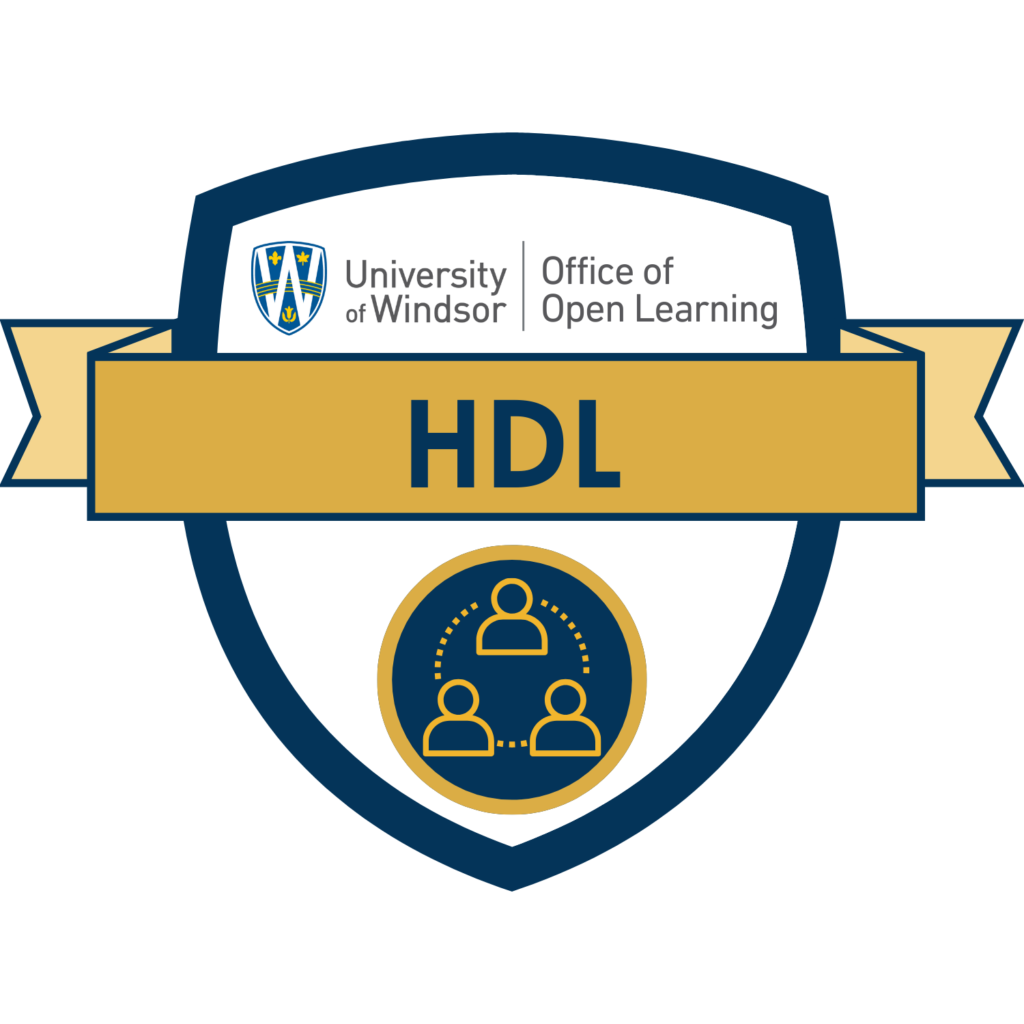
Mark Lubrick, Learning Specialist in the Office of Open Learning
Lorie Stolarchuk, Learning Specialist in the Office of Open Learning
Whether we are new to teaching or have been teaching for decades, it is always nice to see new perspectives from our colleagues. The Office of Open Learning has launched a Humanizing Digital Learning (HDL) Micro-program that is aimed at ensuring we are keeping the students at the core of our considerations when designing and teaching our courses. Whether you are teaching in-person, online, or a hybrid mix, humanizing teaching and learning and considering the impacts of the digital world are crucial to a successful experience for your students.
Is the technology we use daily dehumanizing us and our students? The HDL uses the best available research and pedagogical practices to reduce the dehumanizing impact of the digital, while also focusing on the ways digital technologies can support a more human-centered classroom. The program attracts a diverse group of people interested in this challenge, including faculty, staff and students.
Dr Clayton Smith, a Professor in the Faculty of Education and participant in the HDL Micro-program said “The Humanizing Digital Learning Microcredential courses have given me an important and useful lens to apply to my teaching that takes into account the differing and diverse needs of our students”.
Dr Kristen Lwin, Assistant Professor in Social Work described her experience in the program this way: “The Humanizing Digital Learning Microcredential has been the most helpful set of training sessions I have participated in during my teaching career. I have appreciated the focus on innovative methods of teaching and evaluating student knowledge and skills while always considering accessibility, equity, diversity, and inclusion, decolonization, and Indigenization in the classroom environment. All of the instructors were enthusiastic, knowledgeable, and provided a unique perspective on their respective topics. The homework or assignments were practical and will be used to enhance future courses that I teach. Each course was well worth the time and I would recommend it for anyone who is interested in using any technology in their course, teaches online, or just wants to gain a new perspective on teaching.”
The program is designed to be highly flexible to fit your particular needs. You can take as many courses as you like, in a sequence that makes sense to your context. Participating in the course but not the assessment for each course will earn a digital badge, while successfully completing the assessment activities will earn a micro-credential for each course. Finally, complete all six courses, to earn a micro-certificate in Humanizing Digital Learning! The six courses start with the introductory course, which establishes some common language and identifies many of the challenges that will be addressed in the program. The next four courses address humanizing from the perspectives of student engagement; assessment; the technology itself; and EDI, accessibility, decolonization, and Indigenization. Once you complete the Introductory course, you can decide whether you want to complete the program, and if so, will be assigned a facilitator for the capstone project, which is the final step of the program.
This program is aimed at faculty, staff, sessional instructors, and students with teaching responsibilities.
For more information, visit the Humanising Digital Learning site, contact the Office of Open Learning by email: openlearning@uwindsor.ca or visit the team on the second floor of the Centre for Engineering Innovation (CEI) building at the 700 California entrance.

